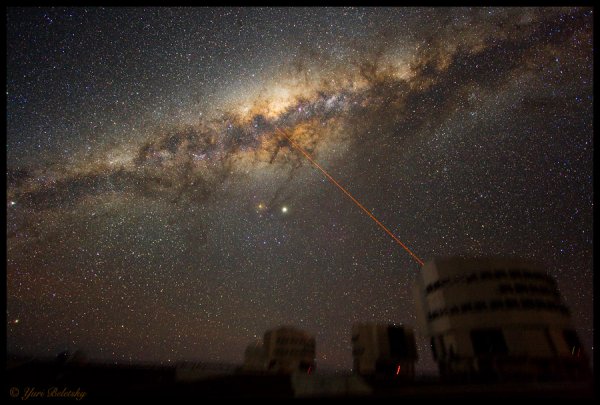Star Formation Across The Milky Way Galaxy

| Science goals | Topics | Meeting format | Place & date | Invited Speakers | Organizing Committee |
Important dates | Registration |
Workshop Motivation and Objectives
Star-formation in the Milky Way is an ubiquitous phenomenon. It occurs on many different scales and in diverse environments ranging from isolated cores, to small groups and modest associations, up to massive clusters and super star clusters. Our knowledge about the onset, dominant modes and typical outcomes of star formation is, however, in general biased by the limited observational accessibility of star formation sites at their various distances and locations within the galaxy.
Ongoing large scale surveys like GLIMPSE, SCUBA, ATLASGAL and UKIDSS trace gas, dust, and young stellar populations across our galaxy and provide new insight in the galactic distribution of star-forming regions and young clusters, and the spatial and environmental variation of the star formation history, efficiency and the initial mass function down to sub-stellar masses. A revised picture of galactic star-formation is slowly emerging. This is required in order to understand the physics of young stellar objects, and star-formation at large, which are key science topics for future projects like ALMA and E-ELT.
We therefore want to gather an up-to-date and comprehensive view of galactic star- formation by tracing ongoing and recent star-formation across the Milky Way. The workshop aims to link communities that usually focus on specific scales and environments, and we will discuss star-formation activity spatially spanning from the solar neighborhood, nearby star forming regions and OB associations, to spiral arms, to the galactic disk, around the central bar and bulge, towards the galactic center.
Our ultimate goal is to identify similarities, differences and the dominant modes of the star-formation process and its typical outcomes across the Milky Way and beyond.
Topics
The workshop will be grouped around highlight talks that cover progressively the spatial scale, i.e. starting from local star formation towards increasing distances. The spatial coverage of the Milky Way will be complemented by topical sessions that will highlight overarching concepts and observations (IMF, binarity, cluster dynamics,metallicity, angular momentum).
- Star formation history in the solar neighborhood
- Nearby young associations
- OB associations
- Star formation at high galactic latitudes
- Star formation in spiral arms
- Young open clusters
- Galactic plane surveys
- Young massive clusters
- Star formation towards the bar and bulge
- Star formation towards the galactic center
- Towards star formation at high(er) redshift
Workshop format
We are planning to hold a moderate-size meeting (~100 people) stretching over4 days. Each sessionwill start with invited talks (45min each + discussion),followed by some shorter (20 min + discussion) contributed presentations. A spacewill be available for displaying posters. Advanced astronomy graduate studentswill be welcome to attend the workshop. We would like to limit the total numberof participants (speakers or not) to about 100 people maximum. Limited amountof funding support might be available upon request.
While we do not plan to publish formal proceedings, we will make the contributionsavailable on our website.
Place and Date(s)
This 4-day meeting will be held in Chile, at the ESO-Chile headquarters in Santiago on March 3-6, 2008.
Invited Speakers
- Fred Adams, Michigan, USA
- João Alves, Granada, Spain
- John Bally, Colorado, USA
- Nate Bastian, London, UK
- Leo Blitz, Berkeley, USA
- Giovanni Carraro, ESO/Chile
- Bruce Elmegreen, Yorktown Heights, USA
- Mark Gieles, ESO/Chile
- Preben Grosbøl, ESO/Garching
- Phil Lucas, Hertfordshire, UK
- Fabrice Martins, MPE/Garching
- Tom Megeath, Toledo, USA
- Jorge Melnick, ESO/Chile
- Thierry Montmerle, Grenoble, France
- Sergei Nayakshin, Leicester, UK
- Livia Origlia, Bologna, Italy
- Francesco Palla, Florence, Italy
- Fred Schuller, Bonn, Germany
- Andrea Stolte, Los Angeles, USA
- Hans Zinnecker, AIP Potsdam, Germany
Organizers
- Michael Sterzik (Chair), ESO
- Jorge Melnick (co-Chair), ESO
- Claudio Melo (co-Chair), ESO
- Leonardo Bronfman, Universidad de Chile
- Valentin Ivanov, ESO
- Diego Mardones, Universidad de Chile
- Dieter Nürnberger, ESO
- Lars-Åke Nyman, ALMA
- Leonardo Vanzi, ESO
- María Eugenia Gómez / Paulina Jirón (logistic), ESO
Important Deadlines
- December 15, 2007: Submission of abstracts & Final registration
- January 25, 2008: confirmation of participation will be sent to every registered participant
Registration and Fees
- Registration fee: € 80.00 / US$115.00 / CLP$55.000. It includes morning and afternoon coffee breaks, refreshments, welcome cocktail, registration package, end of conference cocktail.
Limited amount of funding support might be available upon request.
Your abstract will be reviewed by the SOC, and final approval will be communicated to you by January 15th at the latest.
We have closed regular registration on December 17th, 2007.
March is a holiday season in Chile. We recommend you book your flight well in advance
Contact us
- Conference e-mail: starformation_chile08@eso.org
- Web Page: http://www.sc.eso.org/santiago/science/MilyWayStarFormation/
Paranal/VLT visit
We may organize a visit to Cerro Paranal to visit the VLT facilities. The approximate cost of the air ticket and one meal at Paranal should be € 350.00
Participants would leave on Friday, March 7 and return to Santiago in the evening of the same day. ESO will provide logistics support.
If you are interested, please fill in the box included in the Registration form.
Social event
We plan to hold the conference banquet at a place reflecting typical Chilean life style and cuisine. If you would like to participate, please let us know in the Registration form (General comments box).
